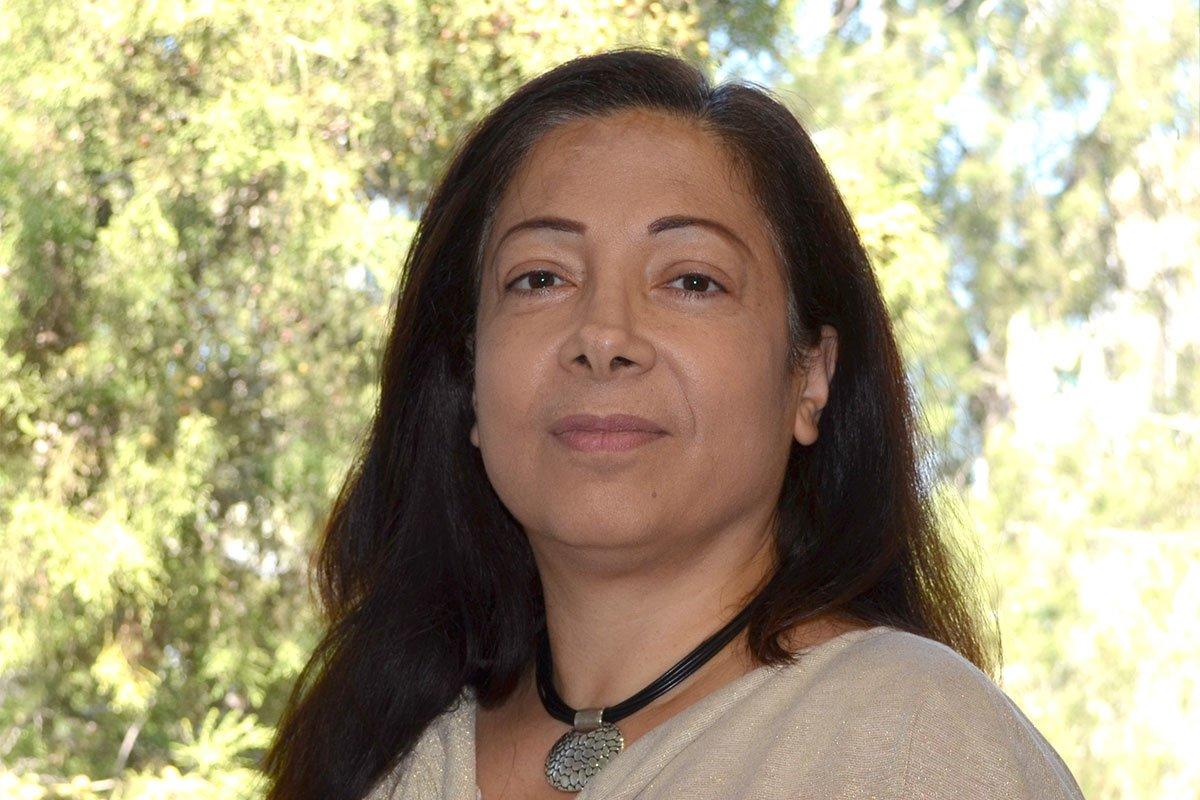Breaking Down Disciplinary Silos
The School of Arts and Sciences appoints Professor Cathia Jenainati as new dean.
From her office in Nicol Hall Building, Cathia Jenainati, the new dean of the School of Arts and Sciences, took in the panoramic view of the Beirut campus. “I love this office space. I often slept here as a student, when it was a guest room,” she said.
That was back when Dr. Hadia Harb was dean of the School of Arts and Sciences and Nicol Hall was still a residence building.
Describing herself as a maverick, Dr. Jenainati says her mission is to educate, shouldering a firm belief in the uniqueness of liberal education, and the need for experiential learning and multidisciplinary curricula.
This comes as no surprise considering her own interdisciplinary background in education.
Dr. Jenainati read English Literature at LAU (then Beirut University College) and Biology at the American University of Beirut (AUB). She pursued her graduate studies in English Literature at AUB and completed her PhD in Comparative Literary Studies at the University of Warwick, where she became a full professor. In 2015, she founded and led the School for Cross-Faculty Studies until she was offered the “unmissable opportunity to return to LAU and take up the deanship of the School of Arts and Sciences.”
“I am fascinated by this job. I didn’t decide to move to Lebanon; I decided to take this job. It is just a step more challenging than what I was doing,” she said.
At Warwick University, Dr. Jenainati founded the Global Sustainable Development Department and, simultaneously, launched the Liberal Arts degree course which is structured around the most pressing global issues. She also founded the Institute for Global Sustainable Development.
In addition to the professional challenge she saw in the new position, Dr. Jenainati was drawn to LAU’s uniqueness, especially as an institution, which from the onset had “a strict mission to support women, and to empower women.”
“LAU has historically been the birthplace of feminist writers, feminist activists and I am at the point in my life right now where I am really shifting my work to the Middle East very firmly,” she said.
“The way I teach and the way I research fall within a problem-based framework. Anytime I think something is worth researching, it is because I find it problematic,” she said. “When I pose a problem, I am always thinking about the economic, social, environmental and governance dimensions. Those are the four pillars of any piece of research, and unless I resolve them I don’t understand a problem fully.”
Moving forward in her deanship, Dr. Jenainati sees an opportunity to introduce a core course that all students can take, regardless of their majors. She is keen to create a shared citizenship-related course that will “bring people together so that they understand that they are a unique kind of graduates because of their liberal arts experience.”
Dr. Jenainati said she was moved by the passion expressed by the chairs for their departments which made her believe that the faculty “would want to implement anything that would make this university more prominent.”
In comparison, she pointed to the current mood in Europe, where faculty is in “survival” mode and growing more and more frustrated due to cuts in funding and a decline in enrollment, especially in light of the threats that Brexit is posing to the EU. “So, it was so good not to hear anything about us surviving; on the contrary, everybody was saying that we were flourishing despite the limitations.”
Being at the helm of LAU’s largest and most diverse school, Dr. Jenainati believes that one way for faculty from different disciplines to work together is to provide a context for that collaboration.
“Disciplinary boundaries are as artificial as national boundaries. They only exist for political reasons and funding,” she said.
“We can bring back this multidisciplinarity in people’s minds, if we know how to make it comfortable for them to do so. The best way to achieve this is by rethinking the curriculum so that it is not constructed around disciplinary silos,” she said.
Building on her own experience to seek knowledge in more than one field, Dr. Jenainati does not believe there are specialist jobs anymore.
“This goes against what everybody says. I think the entry level jobs are highly specialized, but the more strategic roles require breadth,” she said, adding that she advises her PhD students not to overemphasize their specialism. “We need to have higher ambition for our students so that by the time they graduate they are thinking strategically and are able to understand context and culture.”
For her graduate students, “I encourage them to do something that’s peripheral to them and I do this by giving them teaching that is not too focused on their specialism.”
But the ultimate advice from Dr. Jenainati is that “if you have the talent to pursue different things, you must do it. You owe it to yourself.”
Dr. Jenainati is currently writing a book on Henry Jessup and the Presbyterian missionaries, examining the ways in which they shaped the region, as well as critically assessing their educational legacies at AUB and LAU.
